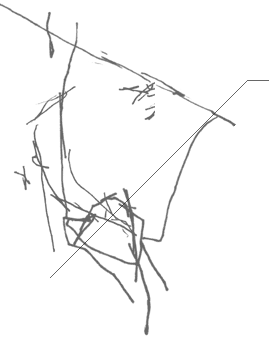Tuesday, March 3, 2026 |
||

|

by Michael Goldberg
Monday July 23, 2001
Buddy Guy Reinvents Hill-Country Blues
A trip to an Oxford, Miss., studio results in a stunning blues album by one of the last living bluesmen
|
|||
|
When the news broke some weeks ago that John Lee Hooker's spirit had left this world, my first thought was that it was all over, that the last of the great bluesmen was gone, and another nail was pounded into the coffin that has "Blues" carved into the lid.
Hooker made raw, crude blues, and I mean that in the most complimentary of ways. I loved John Lee Hooker's music, particularly the very early recordings he made in the late '40s and early '50s, before I was born. I own a long out-of-print boxed set titled John Lee Hooker's Detroit, comprising many of the recordings Hooker made for Bernie Bessman's Sensation label between 1948 and 1952. It's a wonderful album. When I interviewed Hooker in the early '90s, he autographed the back of the set for me — as I write this I'm looking at the hand-written "John L Hooker," and recalling my visit with him at his Vallejo, Calif., home for an afternoon. On another occasion, at the house he had in Redwood City, Calif., he played me a recent recording; it was eerie and funky, and I thought it was as good as anything he'd done before. Much as it makes for a dramatic lead, though, I have since been reminded that the blues didn't die with John Lee Hooker. It certainly lives on with some real-deal artists such as T-Model Ford and R. L. Burnside, who record for Fat Possum. And there's no better example of a bluesman at the top of his form than the latest recording by Chicago's Buddy Guy, titled Sweet Tea after the Oxford, Miss., studio where it was recorded. Buddy Guy will turn 65 on July 30. For years he was just a name on a bunch of old blues records I'd see in record stores. Because there were so many other blues musicians, many with a lot of albums (Muddy Waters, Howlin' Wolf, Robert Johnson, Sonny Boy Williamson, John Lee Hooker, Lightnin' Hopkins, Skip James...) I just never got to Buddy Guy. My mistake. Sweet Tea is a blues masterpiece. When you take a man who's been playing since he was a kid and recording since back in the late '50s when he was 22 — a man who's lived the blues life — put him in a studio with a sympathetic producer, some ace backing musicians and quality songs, what you get is the essence of the blues. The blues is the sound of life lived hard. It's the sound of doing the best you can under the worst of circumstances. It's the sound of living life for right now, 'cause you know something bad is just around the corner. The blues is staying up all night, and damn tomorrow. Often, the blues is about begging a woman to stay, or about how it feels when she's left. Or it's about walking out on a relationship. Sometimes it's about cheatin'; other times it's about someone cheatin' on the one who's singing the blues. Sometimes the blues is about deals with the devil. Sometimes it's about the hell some folks deal with here on earth. When, in the song "Stay All Night," Buddy Guy sings, "Stay all night/ Stay a little longer... and love me girl/ Love me girl/ Love me baby/ Love me girl," he sounds desperate, as if all that stands between him and the darkness is this woman he is with right now. Someone else could sing those simple words and they'd ring hollow. They would mean nothing. But when Buddy Guy sings them, that desperation in his voice gives them a weight. He's sharing a feeling we've all certainly felt, voicing a most basic need: to share a night, and love, with another. And there's nothing trivial about that. There's a lot of guitar on Sweet Tea. It's no surprise that Eric Clapton has called Guy his favorite blues guitarist. Listen to Clapton play on John Mayall's Bluesbreakers With Eric Clapton, or on the Cream albums like Fresh Cream, and you'll certainly hear the sound of Buddy Guy. Producer Dennis Herring had to convince Guy to make an album of raw North Mississippi hill-country blues. Not only did Guy travel to Mississippi to make the Sweet Tea, but Herring selected songs by such Fat Possum artists as Junior Kimbrough, T-Model Ford and Cedell Davis for Guy to record. And he brought in an interesting mix of musicians, including such veteran bluesmen as T-Model Ford drummer Spam and Jelly Roll Kings drummer Sam Carr, along with drummer Pete Thomas of Elvis Costello's Attractions and rhythm guitarist Jim Mathus of the Squirrel Nut Zippers. But Sweet Tea isn't just a re-creation of an old blues style. Over the years Buddy Guy has listened to Hendrix and Stevie Ray Vaughan and Clapton, as well as the bluesmen who came before and after him, and those influences have seeped into his style. He's known, in fact, for covering songs by Hendrix and other blues-rockers in concert. To my ears, Sweet Tea is a 2001 blues album. The form, if you will, is hill-country blues, but the sound is one that Buddy Guy has spent a lifetime developing. And it's an amazing thing to behold! |
||||